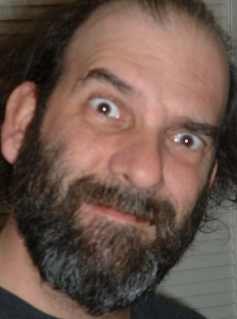Written several years ago, this article reflects frustration with the lack of respect and formality that I saw as being, if not encouraged by adults (parents, teachers, etc.) then certainly facilitated by them. After asking them and myself why, I came up with this:
------------------------------------------------------------------------------------
It all starts with "Mr. Netherland." It may seem like a throw-back, an anachronism, but one of the first things I taught my son was to honor and respect his elders. At the same time, I believe, there was collateral education: he learned that people in our culture have surnames. Now what was the most important lesson? Academics and politicians will want to know, so that precious social engineering resources can be focused on the most important lesson, cutting out a step, reducing waste, improving efficiency, delivering the best education in half the time. Well, it doesn't matter.
I also like to believe that I was able to provide a real-world example for the other children in the neighborhood, of honor and respect and the use of surnames in action, just in case their parents were struggling to impart the same lessons. It was my duty as a responsible member of the community and of society at large to do so, to insist that children address me as Mr. Netherland and my wife as Mrs. Netherland. It has been more than seven years since we moved to this lovely neighborhood. The kids are in or almost in high school and they still call me Mr. Netherland. They also, in my presence at least, use the surnames of the other parents in the neighborhood. And it fills me with great pride to hear them do so.
Now, why is this such a compelling subject for me? Because for some reason, people of my generation have sought to hide from their children, the fact that people have surnames and that using them is a sign of honor and respect. At some point, it became passe and old-fashioned to refer to people who are not your peers, not old friends or family in a formal way. The distinction between formal and informal social interaction was lost, or, more likely, bound with a stout rope and pushed overboard in the middle of the night.
How did this happen and when? It would be too easy to blame it on the Democrats, Hollywood or a "vast left-wing conspiracy." I suspect it has something to do with the concept of retail marriages. Try it risk free for five years or two children and, if you are not completely satisfied, return it for a full refund. One can't assume that Johnny Smith's parent's are Mr. and Mrs. Smith, still. Or try this theory: Our generation has become obsessed with protecting the privacy of ourselves and others. This is a strange character trait of the generation that created the Information Age. Perhaps, like Dr. Frankenstein, we have recoiled in horror at the monster we have unleashed. But it's more like the institutionalized paranoia in the face of a expanding body of liability law surrounding the Privacy Act. Rather than risk a lawsuit, it's better not to pry too deep into a person's life. God forbid you should volunteer your full name. Who wants that burden? Why risk being identified?
Perhaps the answer, as with the Truth, the final frontier, and Ralph Nader, is out there somewhere. Hunting it down seems to be a waste when there is so much to do to mop up and restore order right here, at home. But we should be able to recognize it. The WANTED posters should not be allowed to yellow on this one, just in case the varmint is spotted near our Solar System again.
Until then, however, if you feel you must introduce your child to your friends, peers, colleagues, other parents, members of the coaching staff, etc. (unless they are children themselves) do so in the formal manner. To do otherwise deprives both parties; your friend, et al, of the respect they deserve; and your children of the knowledge that this is a real person. A person with a family name and history. And of the knowledge that this is someone they should honor and respect. The education of Mikey, and of Will, Drew, Heather, Julie and Beth, and all children begins with this simple and important thing.
What are the other collateral benefits of this throwback? We begin to learn more about the people with whom we live and work. Mr. Mike is nothing. A two-dimensional cut out. A dressed up Mike. Mr. Netherland, however, is substantial. He can be located, made responsible and held accountable for his actions. He can be tracked down just about anywhere on the face of the Earth. Mr. Mike is a cartoon, a piece of bubble-gum, a Pokeman. Is this the impression of our friends and neighbors you wish to convey to your children?
Think about it. Don't you feel silly saying, "Ellie, this is Mr. Mike"? What does that mean? It means you can't be bothered to learn someone's last name, yet you feel no compunction about inflicting your children on them. You might as well introduce your children to "Mr. Serial Killer," or "Mr. Crack Smoker." Or it could mean that you don't think your children are capable of grasping the concept of respect. Which is it? Neither option reflects well on you or your family.
So the next time you are tempted to say "Oh, he can call me..... ." Don't. And if you get this from a friend or neighbor, simply say that you are trying to raise your children right. You might find things change back, for the better.
Daily News Brief | January 9, 2026
1 hour ago

No comments:
Post a Comment